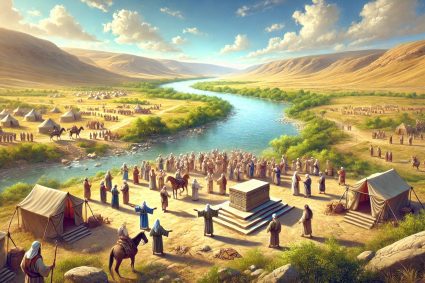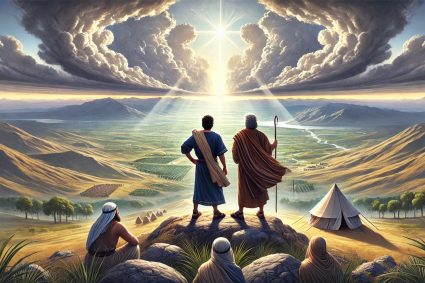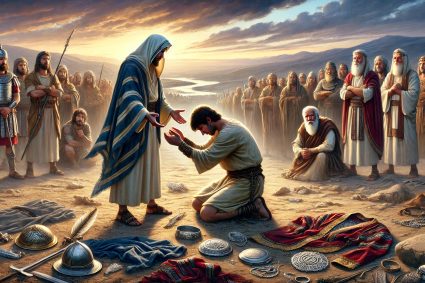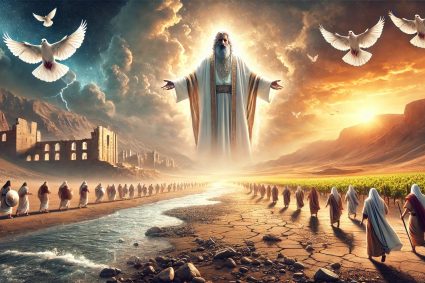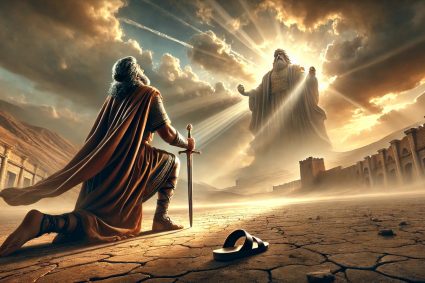
Series THREE COSMIC MESSAGES with Pastor Mark Finley |
Lesson 12: The Seal of God and Mark of the Beast: Part 2
An Examination of End-Time Symbols and Their Significance in the Context of Faith and Society
The question of the true Sabbath and its importance in the end times is at the heart of our lesson today. In a world that is constantly changing, where societal norms and values are being redefined, it is crucial to hold fast to the unchanging principles of faith. Lesson 12 deepens our understanding of the Sabbath commandment as God’s seal and contrasts it with the Mark of the Beast. Through the examination of biblical texts and historical developments, we will better understand the significance of the Sabbath for our lives and our faith, recognizing why loyalty to God’s commandments remains central even in challenging times.
Memory Text: Revelation 13:10 – He who leads into captivity shall go into captivity; he who kills with the sword must be killed with the sword. Here is the patience and the faith of the saints.
Contents:
12.1 The Deadly Wound
The prophecy of the “deadly wound” and the resurgence of religious power
The texts from Revelation and Daniel point to a specific period during which a religious power would dominate. Applying the principle “a prophetic day equals a literal year,” a period of 1260 years is derived. Historically, in the 6th century, the papacy became a significant religious and political force in Europe, its power lasting until 1798 when Napoleon captured the pope. Although this was seen as a “deadly wound” to the papacy, Revelation prophesied that this wound would be healed, and the power would resurge.
12.2 The Falling Away
The apostasy and warning against apostate religious powers
Paul warns in 2 Thessalonians of an apostasy in the end times, where a power rises that sets itself above God and seats itself in the “temple of God.” This description resembles the identifying marks of the beast and the little horn in the books of Daniel and Revelation. It is argued that these prophecies could point to the papacy. The warnings emphasize a system deviating from the true Gospel and placing human traditions above biblical truth. Despite criticism of apostate religious organizations, the commentary underscores Christ’s love for people and the need to treat them with love.
12.3 Satan’s Final Strategy
The consolidation of power between religion and politics in times of crisis
Revelation indicates that political powers will unite and give their strength to the beast, symbolically representing a religious-political union. Despite the apparent power of this conglomerate, it will ultimately fight against Jesus, the Lamb, and be defeated. Historical events, such as Constantine’s conversion to Christianity and the sanctification of Sunday, show that in times of crisis, religion and politics are often used as instruments for consolidating power. In a world full of crises, people might desperately seek stability, potentially opening the door for authoritarian regimes. Revelation warns of these final events, emphasizing the need to be prepared for everything.
12.4 The Mark of the Beast
The Mark of the Beast and the Sabbath: A central conflict in end-time worship
Revelation points to the Mark of the Beast, which will be placed either on the forehead or on the hand, symbolizing a departure from God’s commandments. In contrast stand the believers who hold fast to God’s commandments and honor the true Sabbath. The introduction of legal restrictions on religious freedom could stigmatize those who observe the Sabbath as societal adversaries. Historically, the Catholic Church claims the change of the Sabbath to Sunday as a sign of its authority. Revelation hints at a future conflict where worship will either be of the beast or the Creator, with the Sabbath playing a crucial role.
12.5 The Sabbath Test
The Sabbath as God’s Seal: Steadfastness in times of societal change
Sunday as a day of rest gains importance, as emphasized by Pope Benedict XVI., and could potentially lead to legal mandates in the future. For those honoring the biblical Sabbath, such regulations could lead to conflicts, as they prioritize the true Sabbath over Sunday. Amidst these challenges, God’s faithful people will remain steadfast and not yield to societal pressure. In contrast to the Mark of the Beast, the Sabbath commandment symbolizes God’s seal, with elements like the name of the Creator, the title of the Creator, and the territory of the Creator. This seal is placed on our forehead, representing our thinking, and shows the connection between keeping God’s commandments and believing in Jesus.
12.6 Summary
The biblical Sabbath: God’s authentic seal in a changing world
Lesson 12 highlights the importance of the Sabbath as God’s seal. It emphasizes that while Sunday as a day of rest is gaining importance, according to statements from Pope Benedict XVI., the biblical Sabbath remains the true day of rest. Despite potential legal regulations and societal pressure, God’s people will remain steadfast and honor the Sabbath. In contrast to the Mark of the Beast, the Sabbath commandment symbolizes God’s authentic seal, based on our thinking and our belief in Jesus.
(Visited 59 times, 1 visits today)

